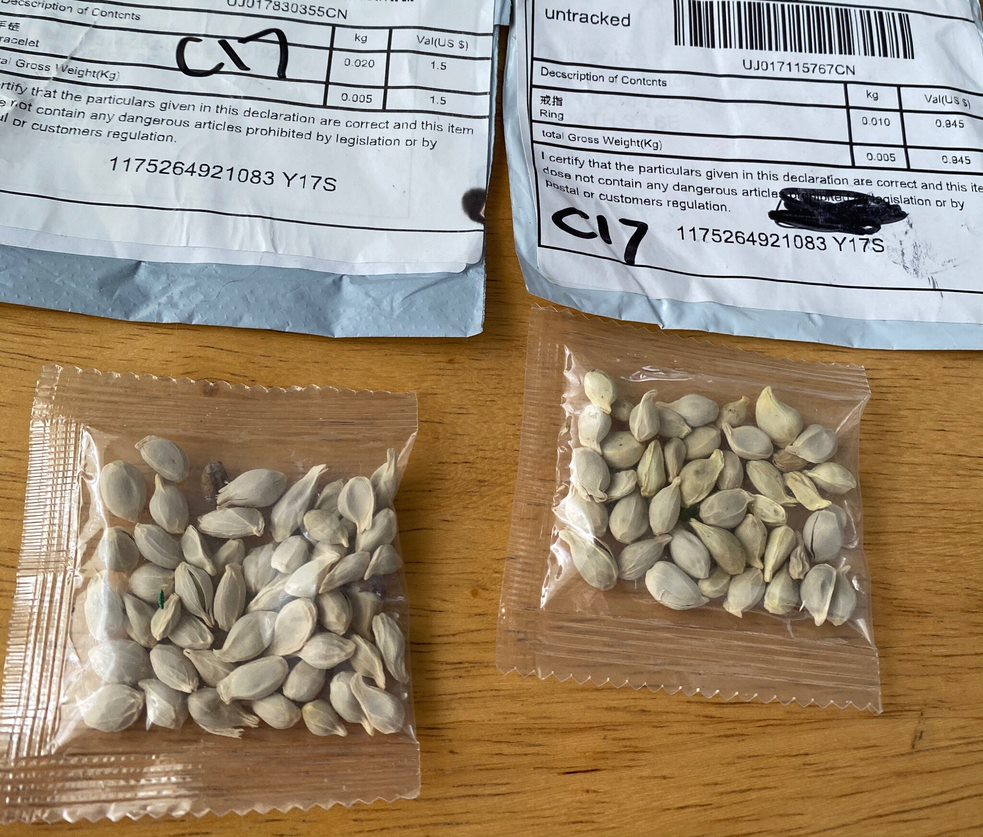
Jul 30, 2020
Don’t plant unsolicited seeds, officials urge
People across the country have received suspicious, unsolicited packages of see that appear to be coming from China, and the USDA is paying attention.
USDA’s Animal and Plant Health Inspection Service (APHIS) is working closely with the Department of Homeland Security’s Customs and Border Protection, other federal agencies, and state departments of agriculture to investigate the situation.
USDA urges anyone who receives an unsolicited package of seeds to immediately contact their state plant regulatory official or APHIS State plant health director. Those who receive the seeds are urged to hold onto the seeds and packaging, including the mailing label, until someone from your State department of agriculture or APHIS contacts them with further instructions. Do not plant seeds from unknown origins.
“If you receive unsolicited seeds from another country, do not plant them. If they are in sealed packaging, do not open the package,” said Mike Philip, director of Michigan Department of Agriculture and Rural Development Pesticide and Plant Pest Management Division. “We don’t know what type of seeds are in the packages, but we do know they come in a variety of sizes and colors, with some reported to be very tiny. These unsolicited seeds could be invasive, introduce diseases to local plants, or be harmful to livestock.
“If planted, these unknown and potentially invasive species could have a very negative impact on the environment. Additionally, we’re asking people not to throw the seeds or packages away or dispose of them,” added Philip. “MDARD appreciates the cooperation of Michiganders who receive these packages as we work together to protect Michigan agriculture.”
At this time, the USDA doesn’t have any evidence indicating this is something other than a “brushing scam” where people receive unsolicited items from a seller who then posts false customer reviews to boost sales. USDA is currently collecting seed packages from recipients and will test their contents to determine if they contain anything that could be of concern to U.S. agriculture or the environment.
USDA is committed to preventing the unlawful entry of prohibited seeds and protecting U.S. agriculture from invasive pests and noxious weeds. Visit the APHIS website to learn more about USDA’s efforts to stop agricultural smuggling and promote trade compliance.
Photo: Michigan Department of Agriculture and Rural Development






